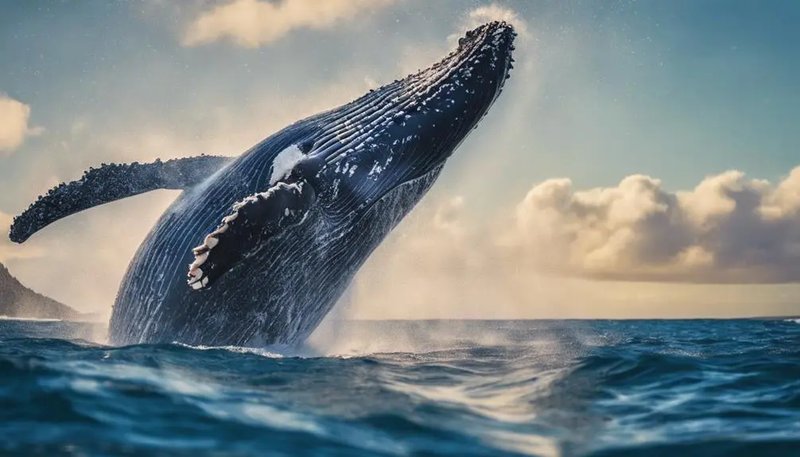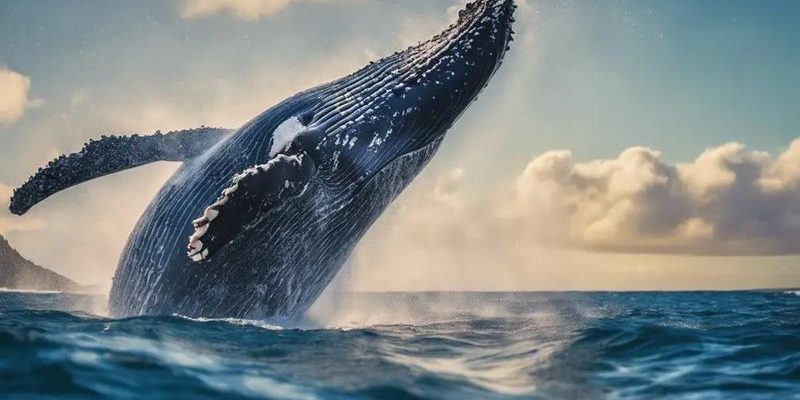
In this article, we’ll dive deep into the myths and cultural beliefs surrounding humpback whales. By exploring everything from ancient legends to modern interpretations, we’ll uncover how these stories shape our understanding of these magnificent creatures. Hopefully, you’ll leave with a better appreciation for not just humpback whales, but also the rich tapestry of beliefs that surround them.
Humpback Whales in Indigenous Wisdom
Indigenous cultures have long revered the humpback whale, often seeing them as symbols of strength and resilience. For many coastal communities, these whales are more than just animals; they embody spiritual connections to the ocean. In Native American folklore, humpbacks are frequently depicted as guardians of the sea. Their songs are believed to carry messages between the water and the heavens.
Here’s a fascinating example: in Hawaiian culture, the humpback whale, or “kohola,” is associated with ancestral spirits. During whale season, it’s common for locals to celebrate these creatures through storytelling and hula dances, honoring their role in the ecosystem and the spiritual world. This relationship highlights the deep respect and connection these communities feel toward the ocean and its inhabitants.
The wisdom of these traditions teaches us about ecological balance and respect for nature. The belief that humpback whales are sentient beings suggests a recognition of their intelligence and emotional depth—something many modern scientists are beginning to validate. It’s a reminder that every creature plays a role in the greater story of life.
Myths of Love and Fertility
In various cultures, humpback whales are often linked with love and fertility. Their spectacular mating dances and songs are not just for show; they symbolize courtship and the continuation of life. Observing these magnificent displays, it’s easy to see why people throughout history have connected these creatures with romantic love and procreation.
For instance, in some Polynesian cultures, the arrival of humpback whales signifies fertility and prosperity. Rituals and ceremonies often accompany their migration, signifying a time for planting and growth. This underscores a belief in the interconnectedness of life; just as the whales come to mate, communities also prepare for new beginnings.
Interestingly, the life cycle of the humpback whale mirrors many human experiences. Their long migrations to warmer waters for breeding are symbolic of the journey we all take in search of love and connection. It’s a beautiful parallel that highlights the emotional ties we share with nature.
Legends of Humpback Whales in Popular Culture
Humpback whales have also made their mark in popular culture, often portrayed as wise, gentle beings. They appear in books, movies, and other forms of media, fostering a sense of wonder and empathy towards the ocean’s inhabitants. For example, the famous children’s book “Moby Dick” rivals the more positive portrayals of whales by representing them as objects of obsession and pursuit.
Films like “Free Willy” have shifted the narrative, showcasing these creatures as symbols of freedom and conservation efforts. The humpback whale’s iconic songs and acrobatics in the water captivate audiences, adding to their mythical status. It’s fascinating how these portrayals influence our perception and inspire efforts to protect these majestic animals.
This integration of humpback whales into our cultural narrative reflects our complex relationship with nature. Through storytelling, we can convey the importance of marine life and the need for conservation, ultimately fostering a deeper connection between humans and the animal kingdom.
Scientific Insights vs. Mythical Beliefs
While myths and cultural beliefs provide a rich narrative, science sheds light on the realities of humpback whales. The beauty of these creatures isn’t just in their songs or behaviors, but in their biology. Scientists study their migratory patterns, communication methods, and feeding habits to better understand their role in the marine ecosystem.
Interestingly, some scientific discoveries challenge traditional myths. For example, the belief that humpback whales are solitary animals has been debunked. They often travel in pods, showing social complexity that parallels human relationships. This revelation can reshape how cultures view these creatures, merging ancient beliefs with modern understanding.
You might be wondering how we balance these narratives. Honestly, it’s about respect. By recognizing both the scientific insights and the rich tapestry of myths, we can appreciate humpback whales in a multidimensional way. They are both creatures of science and symbols of cultural identity.
The Environmental Significance of Humpback Whales
Beyond myths, humpback whales play a crucial role in maintaining the health of ocean ecosystems. Their feeding habits help control prey populations, while their movements promote nutrient distribution throughout the water. This ecological role often gets overshadowed by their symbolic significance, but it’s essential to recognize their practical impact.
Many cultures have begun to incorporate environmental consciousness into their beliefs about humpback whales. For instance, the concept of *”mana,”* or spiritual energy in Hawaiian culture, emphasizes the importance of living harmoniously with nature. Protecting humpback whales is seen as a way to honor this spiritual connection, reinforcing the idea that conservation is a form of respect for life.
As global awareness of environmental issues grows, integrating these cultural beliefs with scientific understanding can lead to better conservation efforts. When we view humpback whales as integral to our planet, it inspires actions that protect not only them but the oceans they inhabit.
In the end, the myths and cultural beliefs about humpback whales are not just fascinating stories; they reflect humanity’s deep connection to the ocean and its inhabitants. By understanding these beliefs, we can appreciate the broader implications of how we view nature. Whether it’s through rituals honoring their seasonal migrations, or the modern interpretations that celebrate their grace, humpback whales continue to inspire wonder.
Embracing the narrative of humpback whales allows us to foster a deeper understanding of our environment and the creatures we share it with. So next time you think about humpback whales, consider not only their beauty and grandeur but also the rich cultural tapestry they represent. After all, these gentle giants are more than just animals; they are symbols of our shared spirit and the stories we tell about life on Earth.

